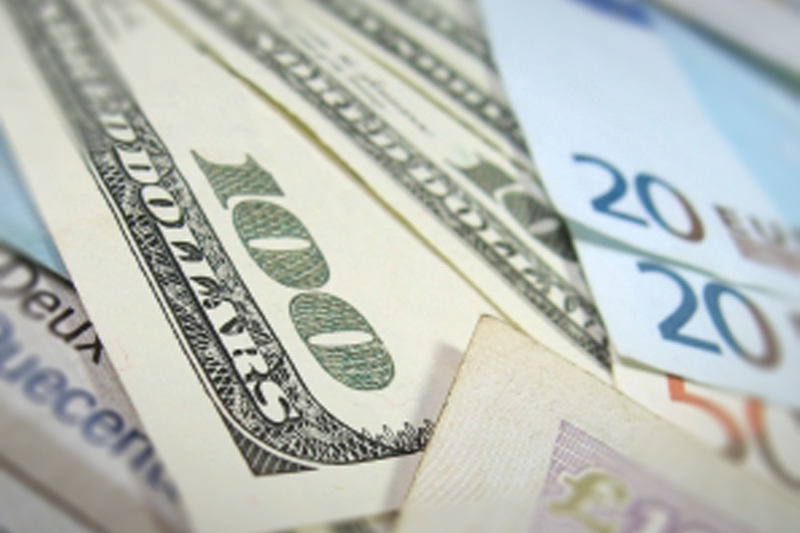Investing.com -- EUR/USD fell sharply extending losses from one session, as optimism for a deal in prolonged Greek Debt negotiations faded after a defiant address by prime minister Alexis Tsipras to Greek citizens on Wednesday evening.
The currency pair traded between 1.1043 and 1.1171 on Wednesday before settling at 1.1053, down 0.77%. Although EUR/USD has closed lower in five of the last six sessions, it spiked more than 2.3% on Monday in one of its highest one-day moves in months.
EUR/USD likely gained support at 1.0991, the low from June 1 and was met with resistance at 1.1348, the high from June 23.
In Athens, Greece prime minister Alexis Tsipras insisted that a no vote by Greek citizens in Sunday's highly anticipated referendum does not signal a departure from the euro zone, rather a denunciation of strict austerity measures its international creditors have demanded in return for cash and a potential restructuring of its debt.
"No does not mean breaking with Europe, but returning to the Europe of values," Tsipras said in the address to the nation. "No means strong pressure a socially just agreement that puts burden on those who can shoulder it and not on pensioners and workers once again."
A day earlier as Greece's second bailout expired, Tsipras' government submitted a revised proposal, which included: pension, tax and labor reforms, as well as enhanced fiscal structural measures.
A bevy of Greece's international creditors, meanwhile, remain adamant that a No vote on Sunday will provide an indication of the Mediterranean state's intention of leaving the euro zone. Netherlands finance minister Jeroen Dijsselbloem, the head of the euro group of finance ministers, said Wednesday that no deal will be completed until after the referendum.
Elsewhere, International Monetary Fund head Christine Lagarde said on Wednesday evening that she is unclear where Greek negotiations stand, one day after the Mediterranean state became the first advanced nation to default on a payment to the organization. Speaking exclusively to Reuters, Lagarde added that she hopes the referendum provides more clarity, certainty about the situation.
The U.S. Dollar Index, which measures the strength of the greenback versus a basket of six other major currencies, rose 0.57% to 96.30 amid a wave of strong economic data. The dollar has appreciated sharply in three of the last four sessions as it nears a three-week high.
When the U.S. Department of Labor's Bureau of Labor Statistics releases its monthly jobs report on Thursday, economists expect a consensus rise of 230,000 non-farm payrolls for the month of June. In a robust report in May, non-farm payrolls surged by 280,000, amid significant increases in professional business services, retail trade and trade and transportation.
Analysts also expect the unemployment rate to tick down 0.1% to 5.4% after edging up to 5.5% in May. In terms of hourly wages, economists anticipate an uptick of 0.2% in June building on a 0.3% surge a month earlier.
A strong employment report could appease the hawks at the Federal Reserve, who are in favor of a September interest rate hike. Following last month's Federal Open Market Committee meeting, Fed chair Janet Yellen indicated that the U.S. Central Bank would like to see continued improvement in wage and inflation growth before it raises its benchmark Federal Funds Rate for the first time in nearly a decade.
USD/CAD surged 0.74% to 1.2586 for its fourth straight gain, while USD/JPY gained 0.54% to 123.17, ending a three-session skid.
